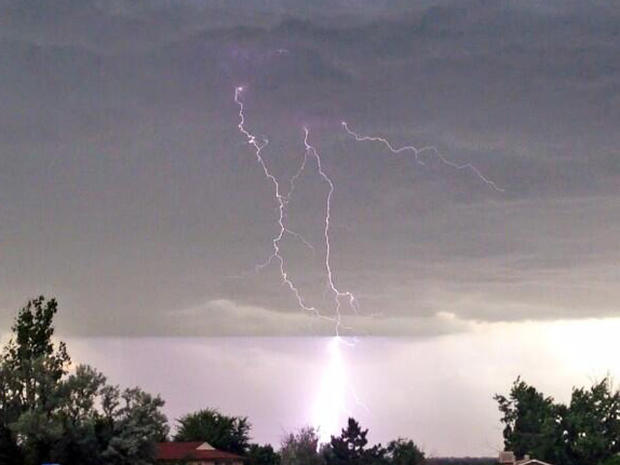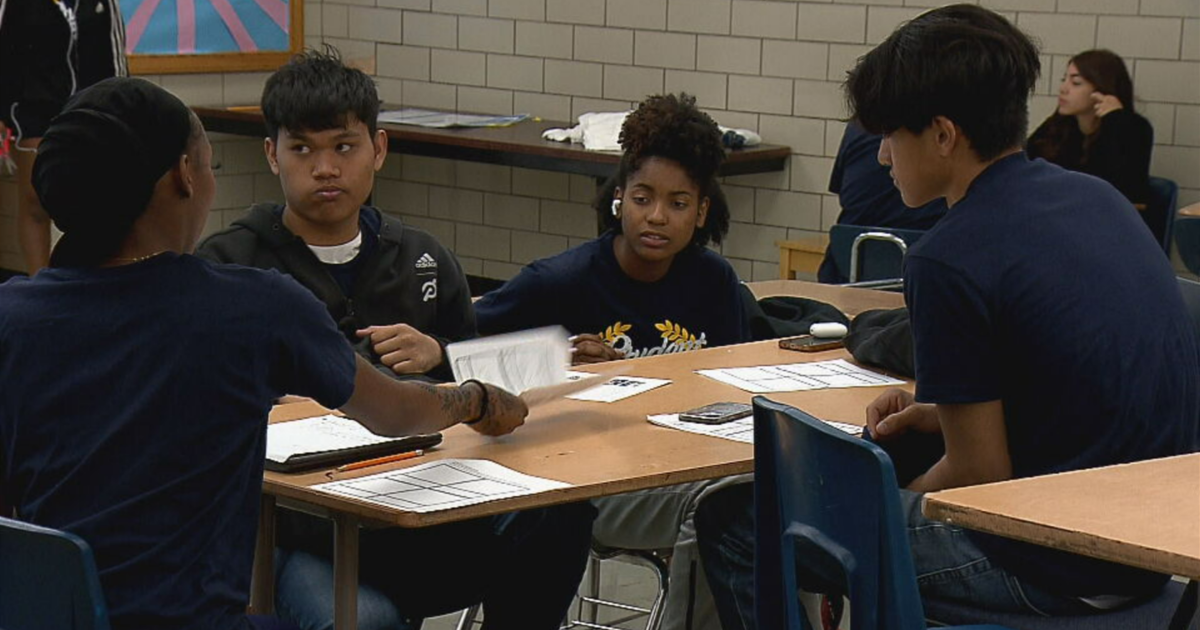Let's Be Careful Out There: We're Now In Lightning Season
DENVER (CBS4) - Colorado has the dubious distinction of being the number two state out of 50 when it comes to deaths and injuries caused by lightning. In fact, we have consistently ranked in the top five every year since 2000. Not a good place to be especially when you consider our state ranks 36th for cloud to ground strikes. Our great outdoors can certainly be a treacherous place.
Here are some things to consider:
The first and most important is simple: If you can see lightning or hear thunder, you can be struck without further warning.
Forget the temptation to count out a cadence to guess distance. A bolt can strike up to 15 miles away -— meaning if you're relying on the old "one, one thousand, two, one thousand" to gauge a safe distance, forget it. So, if you can hear thunder, it's time to seek shelter. The CBS4 Weather Team often says "When thunder roars, go indoors."
That means solid shelter -- not a tent, not a canopy, not a porch -- but something with four solid walls. Even a car is better than nothing. But keep this in mind when it comes to a vehicle: it's not the rubber tires that protect you from the strike; it's the electricity dissipating over the surface of the vehicle into the ground. A few inches of tread aren't going to protect you from that 50,000 degrees of heat.
Once inside, stay away from plumbing, landlines, even concrete (which often has metal rods embedded in it).
RELATED: CBS4 Severe Weather Guide
Remember, it's a bad idea to stand by a door or window watching the severity of a storm. The last thing you need is a close strike that blows the glass in.
If you are stuck outdoors far from shelter, get small. Crouch into a ball. It's not always the best idea to lie flat since that spreads your body surface area, which is important considering the current of a lightning strike can travel across 60 feet of ground.
Keep in mind the two main factors for a strike: height and isolation, meaning lightning will generally hit the tallest thing in the area, especially when there are few things in the area.
Therefore, if caught outside don't head for the nearest tree.
If you're in the water, get out ASAP. The number one group of people who die from lightning strikes each year in the United States are not golfers, but people who are fishing. Get out and away from ponds, lakes and other bodies of water. Water is a great conductor of electricity.
Speaking of golfers, lightning is not necessarily attracted to metal, so while holding a golf club into the air during a storm isn't a good idea, the club itself is not a magic attractor. It's the height (and the isolation). Same goes for an umbrella.
Immediately get off elevated areas such as hills, mountain ridges or peaks.
Stay away from objects that conduct electricity (barbed wire fences, power lines, windmills, etc.)
Another tidbit: lightning can strike the same place twice — so if it misses the first time, don't be surprised if it takes another shot at you.
Enjoy our great outdoors, but we are now in the season when lightning awareness is a key to safety.
Dr. Dave Hnida is CBS4's Medical Editor. He blogs about the latest studies and trends in the health world. Read his latest blog entries, check out his bio or follow him on Twitter @drdavehnida




